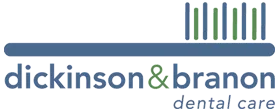
An Introduction to Baby-led Weaning and Its Oral Health Benefits
One of the most exciting moments for parents is their infant’s transition to eating solid foods. This milestone also prompts the very important question of, “How should I start introducing new foods into my baby’s diet?”
There are two primary methods of introducing solid foods and beginning the weaning process. A common method here in the United States is the use of purees, mashes, and what we know as “baby food”. We’ll call this the traditional method. The other method, which is rapidly regaining popularity among new parents, is baby-led weaning.
What is baby-led weaning?
Baby-led weaning forgoes the use of pre-prepared purees and specialized baby food mashes for a more natural approach. This method allows babies to wean at their own pace, often sharing meals with their family and eating the very same foods (offered/prepared in a safe manner).
Baby-led weaning is widely common throughout the world, though it did fall out of popularity within the U.S. decades ago as pre-made baby foods and infant formulas were once heavily marketed toward parents. Many pediatricians are noting that parents now are adopting this style once again.
Is baby-led weaning safe?
Contrary to some myths, research shows that baby-led weaning is just as safe as the traditional method. When dietary guidelines are followed and parent supervision is practiced during meals, baby-led weaning has no increased risks of choking or malnutrition. Remember, even the traditional method requires parents to follow these very same safety precautions.
How does baby-led weaning affect oral health?
The benefits of baby-led weaning range from making mealtime easier on parents to babies developing a taste for a wider range of foods. Parents should also know the oral health benefits of this method.
As your baby tastes different foods and chews on new textures they’re beginning to practice crucial oral motor skills necessary for future facial development, strong jaw muscles, and well-aligned teeth.
The Importance of Chewing and Early Facial Development
Chewing and proper facial development go hand in hand. Diet plays an important role in how much chewing kids do during mealtimes, especially infants and toddlers who have a naturally more limited diet until their primary teeth erupt.
Soft-food diets can inhibit proper facial and cranial development.
Many factors affect how your baby’s face will develop, including genetics and overall nutrition, but chewing is high on the list.
Research has shown that people with diets rich in refined foods tend to have weaker jaws and a greater risk of oral health issues. This phenomenon can be easily seen in elderly individuals who are limited to a soft-food diet due to health concerns or missing teeth. As chewing is limited, jaw muscles atrophy and further tooth loss, periodontal disease, and bite misalignment follow suit.
This idea applies directly to children’s diets. Infants and toddlers who are able to chew on their food and work their muscles will be much more likely to achieve their highest genetic limit of jaw development. Healthy jaw development also encourages primary teeth to erupt properly aligned, thereby safeguarding your child’s future adult smile.
Pediatric malocclusion risks can be reduced through early diet.
Malocclusion (improper teeth/bite alignment) may not be 100% preventable through diet, but you can reduce your child’s risks of developing an alignment issue through dietary changes.
Encouraging healthy teeth alignment begins through baby-led weaning and should be carried through even after your child is fully weaned. Aim for a diet consisting of plenty of whole foods, especially crunchy foods or foods that encourage thorough chewing.
It’s also important to keep in mind that early weaning isn’t recommended or encouraged. In fact, transitioning to solid foods too early can increase the risks of malocclusion as breastfeeding is strongly linked to healthy jaw development as well.
How to Begin the Baby-led Weaning Process With Your Infant
If baby-led weaning sounds like the right choice for your infant, we encourage you to do plenty of research and review the safety basics of this method.
Some important key points to remember include:
- Wait until your baby is at least 6 months old and meeting all normal milestones for their age before introducing food.
- Always supervise meals, even if you’re offering a soft food item or one your baby has eaten many times before.
- Begin with softer foods first, such as egg, ground meat, and cooked veggies, and gradually add in chewier options as your child is ready.
- Only offer foods that are an appropriate size for your child to mitigate the chances of choking.
- Be patient and have fun!
Reach out to a pediatrician or pediatric nutritionist to help guide you through the baby-led weaning process.
In addition to your own research, we strongly recommend consulting with your baby’s pediatrician before beginning any dietary changes—whether it be baby-led weaning, traditional weaning, or a combination.
Raising children is a very personal process for parents and full of many variables. Knowing you have a trusted pediatrician by your family’s side for guidance ensures you’re on the right track with the health of your baby as the priority.
Additionally, some parents may find that their friends or family still believe in some fallacies surrounding the baby-led weaning vs. traditional weaning controversy. Knowing you have a foundation of support through a pediatrician and, perhaps, a support group on social media can help ease your worries and frustrations.
The Dickinson & Branon team will support your children with caring, comprehensive family dental care.
The team at Dickinson & Branon Dental Care in St. Albans is another source of support for parents. We welcome families who are doing baby-led weaning as well as traditional weaning. Our family dentists will keep a watchful eye on your child’s oral health and jaw development during every phase of their childhood.
If you’d like to book an appointment for your baby or you’d like to speak with a dentist about early diet and kids’ oral health, we’re ready to help! Get it in touch by calling our office or filling out this quick online form.
